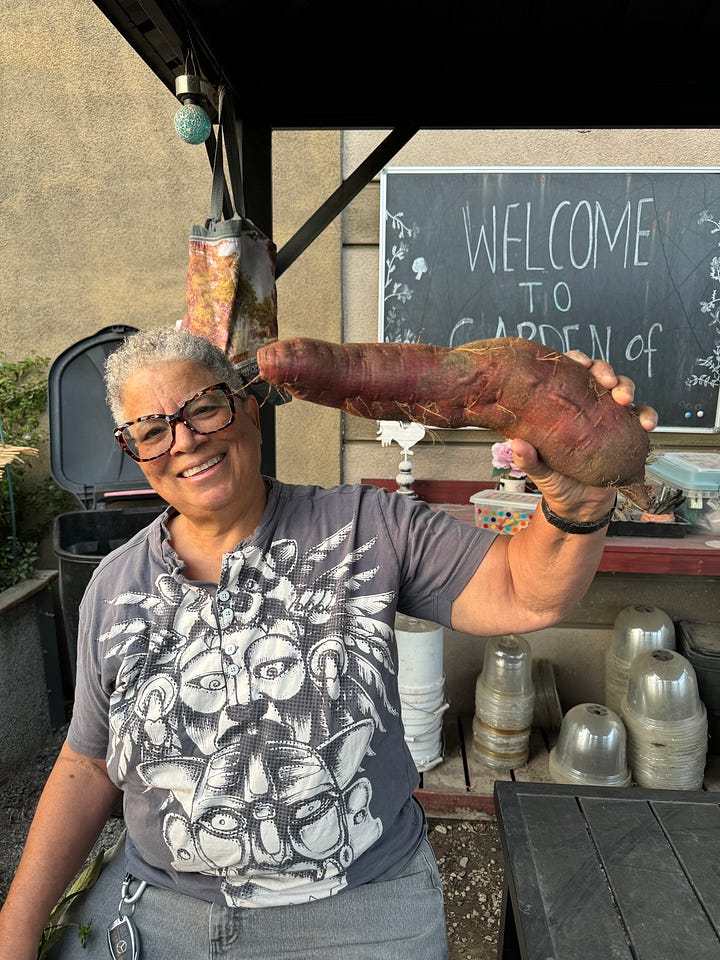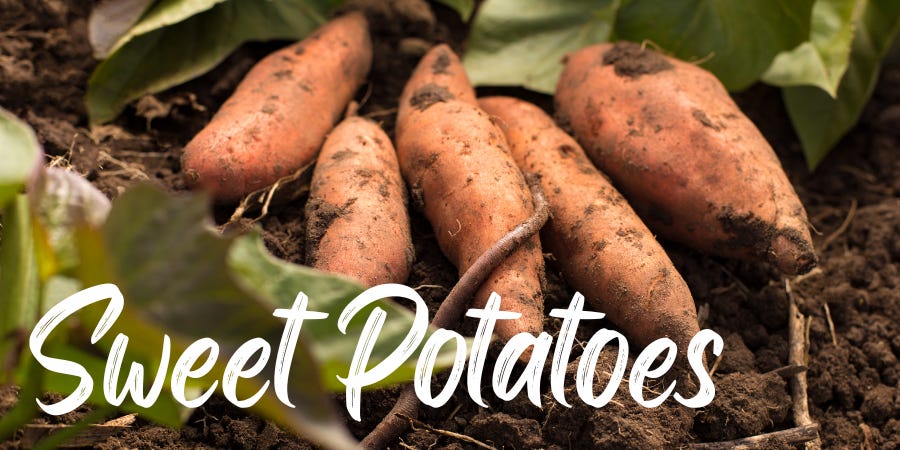Six Reasons to Love & Celebrate with Sweet Potatoes
There are very few foods I can’t live without and sweet potatoes are on that very short list. I love them naked, drenched, baked, roasted, with skins on, mashed, fried and even remixed into a fancy soufflé. Over the course of my years of near-religious sweet potato consumption, I've bought pretty much every shape and shade of sweet potato on grocery store shelves. Before I dish all the reasons why you should love them and make them not just the supporting cast member of all your meals, I just want to set the record straight.
For starters, a sweet potato isn't a potato at all, meaning it's not a member of the Solanum tuberosum potato family from which French fries, mashed potatoes, and latkes are made; their composition of simple sugars and complex starches are quite different. Sweet potatoes actually belong to the morning glory family, Convolvulaceae (that means lots of pretty flowers!). The most common varieties in the U.S. are the Beauregard (the most widely grown cultivar), the jewel, and the garnet (also sometimes known as red yams). But while most of us are comfortable with the two or three shades of sweet potato, there are over 15 varieties waiting to turn your taste buds out.
Though many grocers use the terms "yam" and "sweet potato" interchangeably, the two are far from the same. Unless you live in a tropical climate, or are cooking dishes that specifically call for them, you probably aren't encountering yams at all. Real yams are native to Asia and Africa, and have scaly brown skin surrounding very starchy white flesh. They’re not nearly as sweet as sweet potatoes and take best to boiling and slow braising. On the bright side, this means you're highly unlikely to accidentally purchase a yam at your local supermarket. Instead, you'll find plenty of sweet potato varieties mislabeled as yams. That's thanks to early 20th-century Southern farmers, who began using "yam" to refer to the newer, orange-fleshed varieties of sweet potatoes they were cultivating, as a way to differentiate their product from the white-fleshed sweet potatoes Americans were already familiar with.
Now we’ve got that sorted, let’s get to eating! Sweet potatoes really are great for any meal of the day. Craving a hearty breakfast? Try Loaded Baked Sweet Potatoes with Avocado, Pesto and Fried Eggs. For lazy weeknight dinners, sweet potatoes are on full display with Mediterranean Baked Sweet Potatoes and West African-Inspired Chicken & Peanut Stew. And if you need stand-alone sides, check out the Chili-Roasted Sweet Potatoes and Crispy Smashed Sweet Potatoes. Don't worry—I didn't forget about desserts! Sweet Potato Pudding is a sweet treat you can enjoy all year long.
Happy Eating.
Seed To Supper Program
In September, we received a grant from the Sprouts Foundation to host a year long pilot program called Seed to Supper. It is a comprehensive beginning gardening program that provides novice, adult gardeners the tools they need to learn how to successfully grow a portion of their own food on a limited budget. This joint effort between the City of Hope, Foothill Unity Center, Duarte Senior Center , Pasadena Public Library and the On-The-Grow is offered free of charge and quarterly. Each quarter once a month residents will have a chance to participate in hands-on classes covering vegetable gardening fundamentals: soil preparation, garden planning, planting, maintenance, and harvest. Participants will receive a course book and starter supplies.


Classes cover vegetable gardening fundamentals: soil preparation, garden planning, planting, maintenance, and harvest. Classes are taught at the Pasadena Library Hasting Branch and include hands-on garden work days at the City of Hope’s teaching garden - Garden of Hope. We are currently recruiting for our second cohort that starts in February 2025. Click the link below to join the waiting list.
Events & Opportunities
Food For Thought
Words, songs, inspiration and lessons I saved, read, wrote down, and savored this month.
READ - Op-ed: What a Second Trump Administration Could Mean for Your Food
READ - Black Urban Farmers Are Preserving Generations Of Knowledge In America’s Biggest Cities
READ - Take Care of Your Potatoes, and You’ll Eat for a Year
LISTEN - To brine or not to brine? Testing Thanksgiving turkeys with Arielle Johnson and Harold McGee
Words, Lessons & Inspiration














